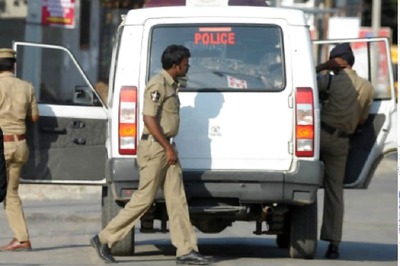
views
The National Investigation Agency (NIA) has reportedly launched an investigation into a fake Facebook account set up by Pakistan’s spy agency ISI to steal defence data. But it is yet unknown what kind of data was obtained through the malware.
The purpose behind making this fake account was reportedly to remotely inject malware into computers, phones, and other devices of defence personnel, staff working in the defence sector and related departments in order to steal sensitive national security information.
It was also said that the account, identified as fb.com/shaanti.patel.89737, which appears in the name of Shanti Patel, contaminated the systems to gain unauthorised access to restricted data.
In June 2020, the Andhra Pradesh police had initiated an investigation into the incident based on source information and that was when the issue first appeared not only in connection with Facebook but other apps as well.
The Army issued a directive on July 9, 2020, instructing all commanders and troops to erase 89 social networking, microblogging, and gaming apps from their smartphones, including Facebook, Instagram and Snapchat.
The NIA has launched a probe into the suspects’ national and international ties, as well as the implications of data theft on national security, based on the Andhra Pradesh police case.
The Hindustan Times reported that according to one of the officers, the central agency will look into the case under the Official Secrets Act (OSA), the Unlawful Activities Prevention Act (UAPA), the Information Technology Act, and conspiracy to wage war against India because sensitive data may have been accessed by the suspects who worked for the ISI.
An officer reportedly said that the hackers linked to ISI were posing as Facebook ‘Shanti Patel’ account contacted Indian defence officers and then engaged with them through a private messenger chat.
He also said: “The suspects spread the malware by displaying them as folders with attractive photographs of women.”
The malware was disseminated from an unknown location in Islamabad, Pakistan, according to the investigation.
It is noteworthy that in 2018-19, the NIA investigated a naval spy ring run by ISI that used social media accounts to honey-trap sailors in order to collect sensitive and classified information about the locations and movements of Indian naval ships and submarines in the eastern naval command at Vishakhapatnam, as well as other defence establishments.
In the case, at least 15 people were arrested, and charges were filed in June 2020.
Then Army chief General MM Naravane said last year: “Information security is the biggest challenge to national security in the present scenario.”
“Cyberwarfare is one of the non-traditional threats. It is not the only threat to our information system, but it is also a threat to the leaking of sensitive information of our country,” he added.
“Nowadays, government and private sector data is available online, and in this situation, a big cyberattack can give a strong shock to the economy and can handicap the government machinery also.”
In terms of protecting the defence establishment from such threat, according to reports from earlier this year, the British Army has banned WhatsApp due to concerns that Russia is hacking the messaging platform to obtain operationally sensitive information. The British Ministry of Defence has reportedly confirmed the ban on WhatsApp due to ‘significant security concerns’.
Read all the Latest Tech News here




















Comments
0 comment